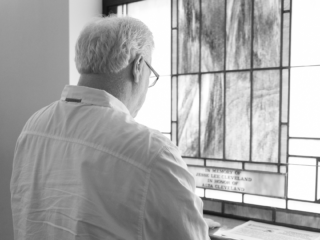As you can probably tell, I’m a political junkie. I’m not partisan. I don’t identify as either a Republican or Democrat. I just love watching the process. I like to see who thinks they have the idea that will galvanize a majority. Who can think on their feet? Who can turn a phrase that will turn the election? Who likes to campaign? Who likes to govern? The plot twists and last-minute surprises are always fascinating to watch.
The approaching mid-term elections have a lot of drama this year. The slim Democratic majorities could be lost in one or both houses and, if that proves to be true, then Biden’s agenda would be all but lost. The Republicans are promising investigations upon investigations if they take control of the legislative branch of government. What’s interesting is that the business community is praying for gridlock. If neither the Republicans nor Democrats can achieve their agendas, businesses seem to thrive.
That is enough to make this year’s midterm elections particularly interesting, but here’s the most interesting reality of this year’s election. Both parties hate their candidates. They may vote for them, but they will be holding their noses when they do. When your campaign slogan is “We’re not them!” – well, that hardly creates a groundswell of support.
As I thought about it, I realized that we have always been lousy at choosing our leaders. Think about it. The great presidents we’ve had have always been surprises. No one recognized greatness in Lincoln or Truman until after their deaths. Roosevelt carried our nation through the Great Depression and a World War, but his skills as a leader were literally unknown when he was elected. No one could have seen the skills he showed in negotiating and leading the Allied victory. Besides George Washington, no president seems to have entered the office with high expectations and then exceeded them.
After all of these years, you’d think we’d be better at it. Sadly, we’re not.
It’s an old problem. Remember when the Israelites demanded that Samuel give them a king? Even when Samuel told them not to choose this form of government, they did anyway. Saul was elected king. Why was he elected? He was tall and good-looking. (Sound familiar?) When God told Samuel to anoint the son of Jesse as the king who would follow Saul, Jesse paraded all of his sons before Samuel. When Samuel asked if these were all of Jesse’s sons, Jesse finally remembered David. Jesse had forgotten David. David wasn’t the kind of leader we look for.
David was the kind of leader God looks for. We shouldn’t be surprised, but the kind of leader we look for and the kind of leader God looks for aren’t the same people.
You would think we’d learn. We don’t.
Even today, if you go to a pastor’s conference, many of the speakers will quote the latest best-selling business book. Pastors will be told to be more entrepreneurial like Steve Jobs or more creative like Ed Catmull of Pixar films. Listen, I’m a fan of the creative business leaders of the world. I’m always amazed at how Bill Gates understood the personal computer would soon sit on everyone’s desk. Until then, the world had only known computers the size of school buses. I’m fascinated by the story of how James Dyson used the concepts of his vacuum cleaners to build a paperless hand dryer.
But let’s be honest. Gates would make a terrible pastor. So would Steve Jobs. Their single-minded, focused, win-at-all-costs attitudes may have built great companies, but they wouldn’t build a healthy church. Jack Welch was known for producing disciples of GE’s way of corporate leadership, but his way wouldn’t work — well, not for long — at the local church level. Local churches keep repeating the same mistake the nation of Israel did. We keep wanting leaders like the world has and we keep getting it wrong. We’re lousy at choosing leaders.
Think about it. Jesus had his choice of heroes to pick from. He could have chosen past kings or military leaders. He could have chosen the great statesman of Rome or Greece. He didn’t choose any of these. Instead, he chose an outlier. Jesus chose the shepherd. Do you remember the dramatic moment when Jesus asked Peter if he loved his Master? Each time Peter answered, Jesus commanded him to care for His sheep.
That’s it. Peter, do your best so My sheep have the best chance to be … sheep. Pastors aren’t called to change the sheep into horses or lions. Pastors are called to make sure their sheep are the best sheep they can be. That’s why you can never write a decent job description for a local pastor. The answer to every question is, “It depends.” What the pastor should be doing depends on what the sheep need at that moment. Because those needs are always changing, the pastor’s role is always changing. The role of the shepherd is totally focused on the needs of the sheep.
No, that’s not exciting, but that’s the calling. Pastors are called to take the flock assigned to them and grow them into healthy and strong sheep. Modern business leaders sacrifice sheep in the name of corporate greed and the illusion of success. A good shepherd would never treat the flock like that. Instead, they gently lead them to water and slowly lead them to pastures, protecting them from harm every step of the way.
Next time you’re looking for a “good” pastor, look at the health of their flocks. Healthy sheep are the evidence of a great shepherd. I know it doesn’t make sense. I know it’s not the way the world does things. But look around at the carnage caused by the world’s style of leadership. Do we really want that for our churches?
Jesus didn’t either. That’s why Jesus chose shepherds and not CEOs for His church. As His followers, we would do well to do the same.









